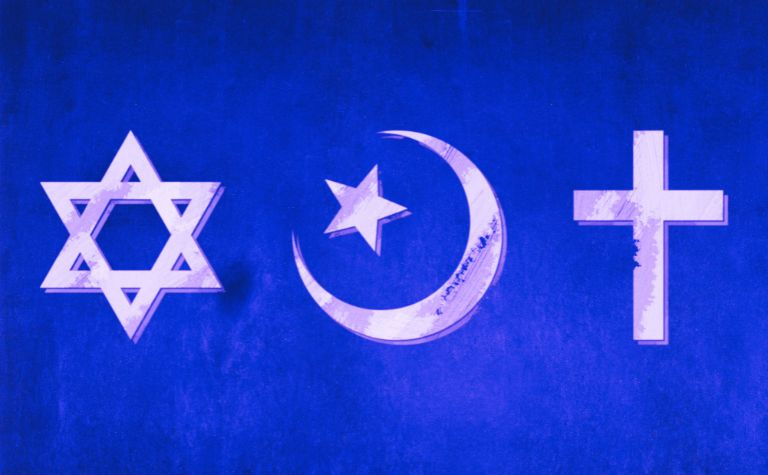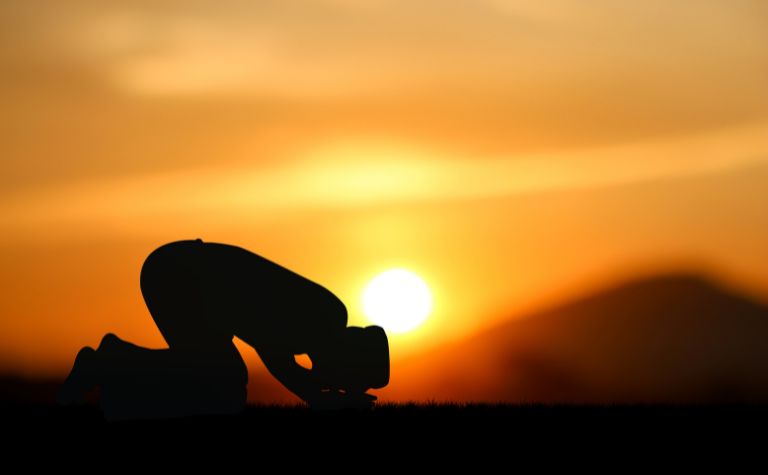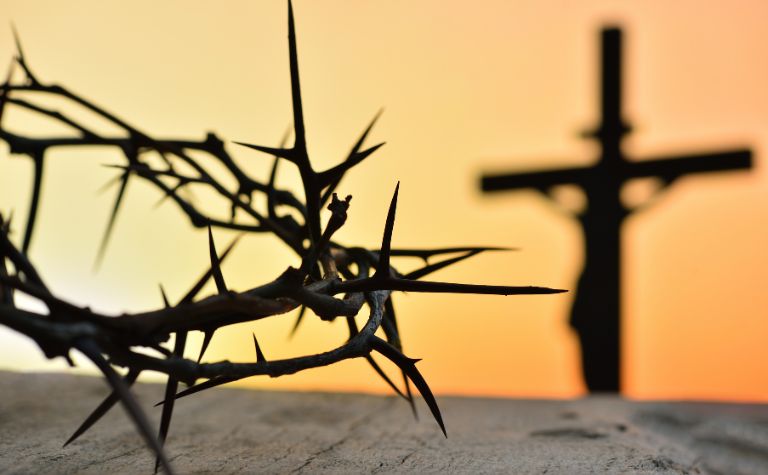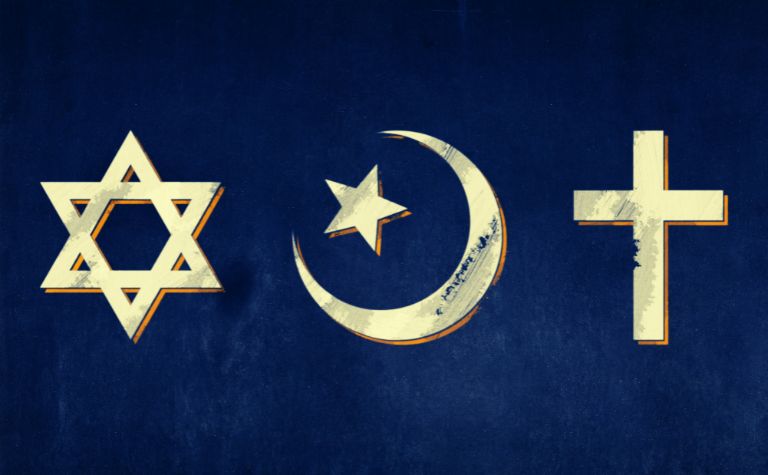This comprehensive guide explores the similarities and differences between Christianity, Judaism, and Islam using multiple comparison charts.
From core beliefs and practices to historical events, this article offers a side-by-side comparison to help you understand these three major world religions.
Ideal for students, educators, and anyone interested in understanding the foundations of these traditions.

Comparing Christianity, Judaism, and Islam: An Overview
The table below provides readers with a snapshot of these three religions. While such a brief comparison has shortcomings, it can point learners in the right direction for further study.
| Christianity | Judaism | Islam | |
|---|---|---|---|
| Name | Christianity | Judaism | Islam |
| Size | Approx. 2.3 billion | Approx. 14 million | Approx. 1.9 billion |
| Date Started | 1st century AD | Around 2000 BC | 7th century AD |
| Founder | Jesus Christ | Abraham | Muhammad |
| Key Beliefs | Trinity, resurrection, salvation through faith | Monotheism, covenant, Torah | Monotheism, Five Pillars, prophethood |
| Key Practices | Baptism, communion, prayer | Sabbath, kosher, prayer | Prayer, fasting, hajj, almsgiving |
| Divisions | Catholic, Protestant, Orthodox | Orthodox, Conservative, Reform | Sunni, Shia |
| Central Location | Vatican City (for Catholics) | Jerusalem | Mecca, Medina |
| Sacred Texts | Bible | Tanakh, Talmud | Quran, Hadith |
Why are Christianity, Judaism, and Islam Called the Abrahamic Religions?
Christianity, Judaism, and Islam are called Abrahamic religions because they all trace their spiritual lineage to Abraham, a key figure in all three traditions.
Abraham is revered for his faith and obedience to God, making him a foundational character in these faith traditions.
Also, see the World Religions Comparison Chart to learn more.

Contrasting Christian, Jewish, and Islamic Beliefs
| Christianity | Judaism | Islam | |
|---|---|---|---|
| God | One Trinitarian God: Father, Son, Holy Spirit | One God (Yahweh) | One God (Allah) |
| The Universe | Created by God; good but fallen | Created by God; fundamentally good | Created by Allah; a test for humans |
| Ultimate Reality | God and His Kingdom | God and His Law (Torah) | Allah and His Will |
| Human Beings | Created in God’s image; sinful nature | Created in God’s image; free will | Created by Allah; born pure |
| The problem with the world | Sin separates humans from God | Disobedience to God’s Law | Disbelief and disobedience to Allah |
| The solution to the Problem | Salvation through Jesus Christ | Repentance and obedience to Torah | Submission to Allah; following the Five Pillars |
| The Afterlife | Heaven or Hell based on faith in Christ | Views vary; focus often on this life | Heaven or Hell based on deeds and faith |
Does Christianity believe in three gods or one?
Christianity is considered a monotheistic religion because it believes in one God. The concept of the Trinity—Father, Son, and Holy Spirit—doesn’t contradict this, as Christians view the Trinity as three distinct persons within the one Godhead, not as three separate gods.

Differences in Christian, Jewish, and Islamic Practices
| Christianity | Judaism | Islam | |
|---|---|---|---|
| Prayer | Various forms; Lord’s Prayer | Shema, Amidah | Salah (5 daily prayers) |
| Fasting | Lent, Advent | Yom Kippur, Tisha B’Av | Ramadan, other Sunnah fasts |
| Rituals | Baptism, Communion | Circumcision, Bar/Bat Mitzvah | Hajj, Umrah |
| Dietary Laws | Varies by denomination | Kosher | Halal |
| Day of Worship | Sunday | Shabbat (Friday evening to Saturday evening) | Friday (Jumu’ah) |
| Charity | Tithing, almsgiving | Tzedakah | Zakat, Sadaqah |
| Scripture Study | Bible study, sermons | Torah study, Talmud study | Quranic study, Hadith |
| Pilgrimage | None for most denominations | None | Hajj to Mecca |
| Confession | In some denominations | Yom Kippur | Repentance to Allah |
| Community Gathering | Church services | Synagogue services | Mosque congregations |
Do Christians, Jews, and Muslims pray to the same God?
While Christians, Jews, and Muslims all claim to worship the God of Abraham, their understanding and portrayal of God differ significantly.
Each religion has unique beliefs and practices that define their concept of God, making it inaccurate to say they pray to the exact same deity.
Christianity and Judaism don’t teach that their followers pray to Allah. Islam doesn’t teach that its followers pray to the God of Christianity and Judaism.

The Sacred Texts of the Abrahamic Religions
| Christianity | Judaism | Islam | |
|---|---|---|---|
| Main Text | Bible | Tanakh | Quran |
| Additional Texts | None for most denominations | Talmud | Hadith |
| Language | Originally in Hebrew, Aramaic, Greek | Hebrew, Aramaic | Arabic |
| Number of Books | 66 (Protestant), 73 (Catholic) | 24 in Tanakh, multiple in Talmud | 1 Quran, multiple Hadith collections |
| Divisions | Old Testament, New Testament | Torah, Nevi’im, Ketuvim | Surahs and Ayahs |
| Central Theme | Life, teachings, and works of Jesus Christ | Covenant and law between God and Israelites | Guidance for life and afterlife |
| Notable Stories | Creation, Exodus, Life of Jesus | Creation, Exodus, Kings and Prophets | Stories of Prophets, Day of Judgment |
| Interpretative Tradition | Various Christian commentaries | Rabbinic literature | Tafsir (Quranic exegesis) |
Comparing Holy Days in Each Faith Tradition
| Christianity | Judaism | Islam | |
|---|---|---|---|
| New Year | not sacred | Rosh Hashanah | Islamic New Year (Hijri) |
| Major Festival | Easter | Passover | Eid al-Fitr |
| Birth of Founder/Prophet | Christmas (Jesus) | None | Mawlid al-Nabi (Muhammad) |
| Day of Atonement | Good Friday | Yom Kippur | Day of Arafah |
| Harvest Festival | Thanksgiving (U.S.) | Sukkot | None |
| Fast Day | Lent | Tisha B’Av | Ramadan |
| Commemoration of Exodus | None | Passover | None |
| Commemoration of Revelation | Pentecost | Shavuot | Laylat al-Qadr |

10 Key Events in Christian, Jewish, and Islamic History
| Rank | Christianity Events | Judaism Events | Islam Events |
|---|---|---|---|
| 1 | Birth of Jesus Christ | Exodus from Egypt | Birth of Prophet Muhammad |
| 2 | Crucifixion of Jesus | Giving of the Torah at Sinai | First Revelation to Muhammad |
| 3 | Resurrection of Jesus | Destruction of First Temple | Hijra (Migration to Medina) |
| 4 | Council of Nicaea | Destruction of Second Temple | First Islamic State in Medina |
| 5 | Conversion of Constantine | Babylonian Exile | Conquest of Mecca |
| 6 | Great Schism | Maccabean Revolt | Death of Prophet Muhammad |
| 7 | Protestant Reformation | Compilation of the Talmud | Umayyad Caliphate |
| 8 | Council of Trent | Expulsion from Spain | Abbasid Caliphate |
| 9 | First Vatican Council | Zionist Movement | Crusades |
| 10 | Second Vatican Council | Establishment of Israel | Ottoman Empire |
References:
[1] Abrahamic Religions – Wikipedia
[2] Encyclopedia of Judaism
[3] Islam – Britannica
[4] Christianity – BBC
Related Questions
Exploring the world's religions using the comparison charts below offers fascinating insights into cultures and beliefs. It opens doors to understanding human history, values, and...
Explore the rich diversity of Christian denominations. Learn how varied beliefs, practices, and traditions shape the Christian faith. Understanding these differences can deepen your insight into...
